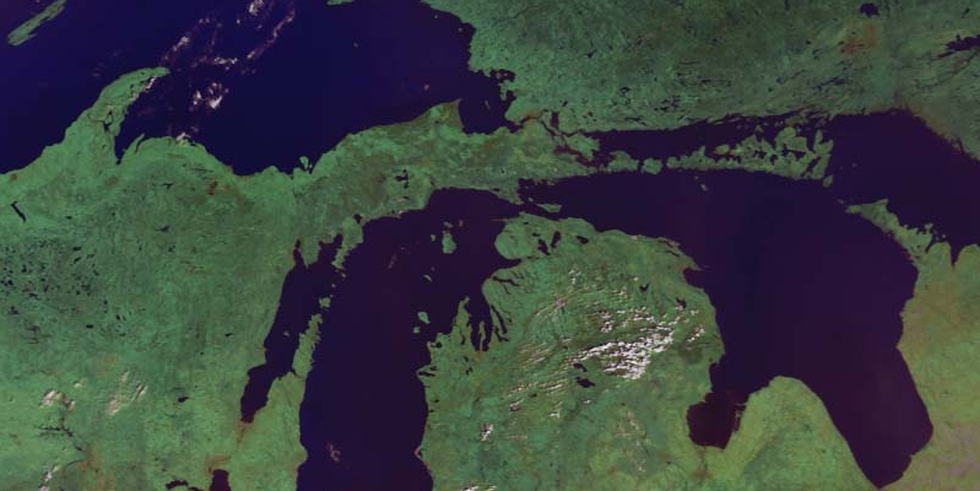
Up North Progressive
Politics and commentary for Northern MichiganNestlé’s Loss to Osceola Township Won’t Fix the Real Problem with Michigan’s Environmental Protection Laws
Thursday , 5, December 2019 Environment, Flint Water, Nestlé 1 CommentWater is, of course, the most important raw material we have today in the world. It’s a question of whether we should privatize the normal water supply for the population. And there are two different opinions on the matter. The one opinion, which I think is extreme, is represented by the NGOs, who bang on about declaring water a public right. That means that as a human being you should have a right to water. That’s an extreme solution. The other view says that water is a foodstuff like any other, and like any other foodstuff it should have a market value. Personally, I believe it’s better to give a foodstuff a value so that we’re all aware it has its price, and then that one should take specific measures for the part of the population that has no access to this water, and there are many different possibilities there. – Peter Brabeck-Letmathe, former CEO of Nestlé 2005 We Feed the World
Tuesday’s victory in the Michigan Court of Appeals for Osceola Township put another necessary roadblock up for Nestlé’s plan to build a booster station in Evart, Michigan, and pump 400 gallons of free water every minute out of the ground and sell it for profit. The 13-page ruling from the three-judge panel thoroughly covered every possible point in the case to make it clear what is considered a public good, and what a body of government can legally do to protect the interests of the people they represent.
In January of 2018, Judge Susan Sniegkowski ruled against Osceola Township, siding with Nestlé’s claim that their bottled water is an essential public service. Water is essential for life to exist, but not water drawn from the ground faster than it can be replenished and sealed into a plastic bottle with a price tag on it According to the ruling of the Michigan Court of Appeals. The court also stated concerns to the impact the pumping station would have on local agriculture in their decision, and that Nestlé’s claim that Osceola Township’s ordinance is illegal unfounded.
Nestlé came to Michigan in 2002 and set up shop in Evart, Michigan, to exploit the abundant water resources in Mecosta and Osceola Counties. The lack of laws protecting the extraction of large volumes of water coupled with the ridiculously cheap filing fee of $200 per year meant Nestlé could sell water with no real overhead. In 2003 The Michigan Citizens for Water Conservation filed suit to stop Nestlé and won, which ruled Nestlé must stop pumping water by December 17, 2003. On December 12, 2003, Nestlé filed for a stay, was ruled against, then filed an emergency stay, insisting closing them down would force them to lay off all of their employees. The court granted the stay, and Nestlé has profited from that ruling from then until now.
While Nestlé plans its next legal move, another court case will be decided in 2020 over whether the bottling plant can begin pumping 400 gallons per minute. In 2018, the Michigan Department of Environmental Quality granted Nestlé’s request to double output despite the overwhelming response from local residents, organizations such as MCWC, Water Protector groups, and even residents of Flint, Michigan, where the human right to clean water is still not recognized by the state. It’s likely both cases could end up in the Michigan Supreme Court.
But even after the state’s system of courts is exhausted, will there be a final answer with how to handle large corporations like Nestlé who exploit the lack of clear law in states like Michigan to turn a natural resource into a commodity with a price tag just like former CEO Peter Brabeck-Letmathe said 15 years ago? Michigan’s Constitution is clear that the state legislature must protect the natural resources of the state, but thanks to Engler’s legacy with the Michigan Supreme Court making it more difficult for the people of the state to sue corporations who threaten our natural resources; and it was the original Nestlé case where this obstacle was tested, stopping corporate polluters is painfully troublesome for Michigan citizens.
Water will continue to be the battleground resource for the future, and the people of Michigan have the right to protect it. It’s clear that the state of Michigan needs to remove legal hurdles imposed in the past to favor profits over people and restore full jurisdiction to the Michigan Environmental Protection Act, or the courts will be swamped with more frivolous lawsuits demanding local ordinances be ignored when it’s inconvenient for big business to exploit our natural resources for profit.
[…] is a big year for the state of Michigan’s water. Nestlé Waters looks forward to pumping 400 gallons of fresh water out of Osceola County every single minute. Enbridge makes plans to begin building […]
